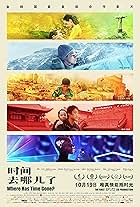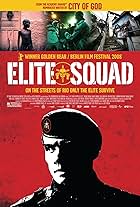Ernesto Guevara de la Serna, popularly known as Che, along with his friend Alberto Granado, decides to take a road trip across South America. His experiences on the journey transform him.Ernesto Guevara de la Serna, popularly known as Che, along with his friend Alberto Granado, decides to take a road trip across South America. His experiences on the journey transform him.Ernesto Guevara de la Serna, popularly known as Che, along with his friend Alberto Granado, decides to take a road trip across South America. His experiences on the journey transform him.
- Director
- Writers
- Stars
- Won 1 Oscar
- 36 wins & 49 nominations total
- Alberto Granado
- (as Rodrigo De la Serna)
- Ernesto Guevara Lynch (Argentina)
- (as Jean-Pierre Noher)
- Ana María Guevara (Argentina)
- (as Sofía Bertolotto)
- Uncle Jorge (Argentina)
- (as Ricardo Diaz Mourelle)
- Kid (Argentina)
- (as Matías Gómez)
- Kid (Argentina)
- (as Ariel Verdún)
- Director
- Writers
- All cast & crew
- Production, box office & more at IMDbPro
Featured reviews
Rodrigo De la Serna, Mia Maestro. (Dir: Walter Salles)
Che Guevera is sadly best known today as a mysterious icon for a pop culture ironic t-shirt sported by the supposedly hip and political. Few, including this reviewer, really knew much more about the firebrand revolutionist who was a comrade in Cuban arms with Fidel Castro in a crusade that led to his eventual capture and execution by the CIA as a notorious fly-in-the-ointment career criminal.
However new insight albeit a few shades of grey and free styling dramatic license intact depicts a twenty something medical student named Ernesto Guevera da la Serna, a South American native (memorably portrayed by the ever soulful Bernal, in a truly outstanding breakthrough performance) who partners with his best friend Alberto Granado (strongly supportive De la Serna) on a trek by motorcycle (a battered 1939 Norton to be exact) an 800 plus mile quest from Argentina up thru the upper regions of Peru with nothing but a few provisions and even less dinero.
Relying on their bonhomie, make-shift surroundings and clever improvisation the odd couple manage to get to Ernesto's girlfriend's nouveau riche family where he tells the lovely Chichina Ferreyra (the fetching Maestro) that he wants her to wait for him but knows in his heart this is more than likely never to be.
After several humorous encounters along the fray the duo finally have to give up their trusty vehicle after many hardships and torrential weather obstacles to go on foot then finally on ferry to their destination: an internship with a leper colony. Along the way the duo meet many disenfranchised and impoverished fellow countrymen and their women and families and with each soul-crushing pit-stop you can feel the stirrings of ire catching fire within the young man who will become Che Guevera.
Salles, who directed the exceptional CENTRAL STATION, smartly allows his two fine actors plenty of room to get into the skins of their funny, fighting and deep souled characters while enlisting the picturesque surroundings of the lush and jaw-droppingly beautiful playas, mountains and countryside (exquisitely rendered by ace cinematographer Eric Gautier) and underlies the proceedings with a hauntingly stirring score by Gustavo Santaolalla.
But it is Bernal who is most powerful in his implosive, soulful and heartfelt turn as the young impassioned man just about to break for greatness; the same can be said of this talented actor's star bursting career.
From the director who unleashed the Oscar-nominated CENTRAL DO BRASIL (1998) on the world and is now torturing audiences around the world with Paris JE T'AIME (a joint-project with some other world-weary humanist directors), a film unlikely to increase Paris' appeal. The film seems conveniently marketed for the anti-globalist soul-searching urbanites in Europe. It will probably keep them quiet for a while, since 'having seen this film' undoubtedly cleansed many souls.
The film's first hour is spent in the extreme southern corners of the continent, in Patagonia, which plays more like a National Geographic episode with some laughably awful dramatics in between. Some time is spent in central Chile and by the 57 minute we arrive in Peru. They use a shot of exactly the same mountain in exactly the same angle (prabably very consciously done) as in AGUIRRE: DER ZORN GOTTES by Werner Herzog, near the ruins of Machu Picchu. This was one of the worst parts of the film, where our infallible heroes engage in some embarrassing chit chat, and - en passant - blame colonialism, Catholicism and modern capitalism for all misery, while talking to some local Incan descendants about how they're gonna put an end to poverty in the world.
Director Walter Salles has an indestructible believe in the goodness of mankind. I do not share this view, but such a perspective shouldn't be a barrier upfront for making a decent film. Salles, however, shows our hero as a completely one-note morally unambiguous robot. He is like a God to him. He seems to lack any questioning about his morals or world view. His view is already established at a young age and now the world has to adapt to his insights, and to this film, which does nothing but play lip-service to these, which results in even more suffering for the audience. All political views aside, the film doesn't offer the slightest assault of the senses, with two incredibly uninteresting characters. The film is largely made to tell the story of Che Guevara, or perhaps show us the diversity of South-American culture and its people, but the film's observations are alarmingly clichéd, contrived and repetitive.
Camera Obscura --- 0/10
I am also a big fan of the purity of movies, not this Spider-man crap that is all over the place, but the true art of films, and I am fairly serious when I go into a movie for the first time. A part of this is that I watch the movie throwing all bias I might have out the window and watch it as if I had never heard of it before. That said, I believe this movie was excellent because it had superb cinematography of the beauty of South America, had excellent acting, great chemistry between the two main actors (despite Ebert saying they did not), and an overall political theme.
This movie did not get great reviews in the US, and I haven't seen reviews from Latin American countries, but I am guessing they are better. This is because many people either shied away from the movie once they heard the word Che, and if they did see it, through the whole movie they were probably thinking "commie, commie!".
I have since read up on Che Guevara, and he is actually a fascinating person to study because he began as a rich boy who through his journeys learned how much people were suffering beyond his imagination, and part of this was how he got to be so rich, by suppressing the native people. The movie does an excellent job of showing this transition from his carefree exploring until later having an epiphany about his destiny to help the people. Yes, he got extreme after a while, but the study of him is compelling nonetheless.
It is interesting to know that coffee and bananas that say "Guatemala" are still grown today by slave laborers on farms, and that the US does not mind the slave labor because they were the ones who sponsored a coup in 1951 to install a dictatorship that in history books says it was an ousting of communism, which makes it okay. This is a much bigger and important example than the movie, but it is the same bias involved: People in the United States (I don't say America because that refers to every country from Argentina to Canada, not just the US as people in this country like to think) not only don't care about the suffering of people in other countries (unless it's mentioned on Oprah or involves economic rewards) but have the nerve to call them evil when they try to better themselves, which at the time was the communist movement in South America. This is not the communism of Castro or even of the later Che Guevara, but simply to give more to the starving and suppressed that are today suppressed to make your bananas and Starbucks coffee.
Because of the biases people have towards the people of countries they know nothing about, this movie has been extremely underrated in the wake of films that comparatively suck ("Ray", way overrated) yet have been rewarded because of their popularity and appeasement to the ignorant people that attend theaters in the United States.
Storyline
Did you know
- TriviaThere are two scenes that were improvised during the filming process.
The scene when Ernesto and Alberto are riding in the snow was not in the screen play. When the crew arrived to the filming location they faced with extraordinary weather conditions. However it was their day off they decided to go to the mountains and shoot this scene.
The scene in Cusco was filmed because the little "tour guide" boy asked the film crew if he can show them the city. They said yes and brought the camera as well. This is the way how they found the women with whom Ernesto and Alberto is talking in the Cusco scene.
- GoofsAt Macchu Pichu, a piece is broken off of the sundial at the Inti Huatana (Hitching Post of the Sun). The damage occurred in 2000, when a crane fell on it. In the 1950s, it was still in perfect condition.
- Quotes
Miner's Wife: Are you two looking for work?
Ernesto Guevara de la Serna: No, we aren't looking for work.
Miner's Wife: No?... Then why are you traveling?
Ernesto Guevara de la Serna: We travel just to travel.
Miner's Wife: Bless you... Blessed be your travels.
- Crazy creditsThe real Alberto appears at the very end of the film just before the credits.
- ConnectionsFeatured in The Making of 'the Motorcycle Diaries' (2004)
- SoundtracksAdiós Muchachos
Written by César Felipe Veldani & Julio César Sander
Interpreted by Rodrigo de la Serna
Interpreted by Alberto Granado
Editorial SADAIC
- How long is The Motorcycle Diaries?Powered by Alexa
Details
- Release date
- Countries of origin
- Languages
- Also known as
- Hành Trình Nam Mỹ
- Filming locations
- Production companies
- See more company credits at IMDbPro
Box office
- Gross US & Canada
- $16,781,387
- Opening weekend US & Canada
- $159,819
- Sep 26, 2004
- Gross worldwide
- $57,663,711
- Runtime2 hours 6 minutes
- Color
- Sound mix
- Aspect ratio
- 1.85 : 1
Contribute to this page





























